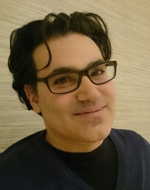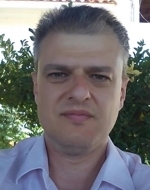Description
Edge Intelligence is a synergy that seems to be imperative to conclude the convergence of the Edge Computing and Internet of Things to support intelligent application very close to end users. IoT has pervaded our daily life by making things, interconnected through the Internet, smarter, distributed and more autonomous. The emerging development of intelligent applications in IoT has now started to gain significant attention. Cloud provides many benefits to IoT devices, including high-performance computing, a storage infrastructure, processing, and analysis of large-scale data giving to IoT the opportunity to be robust, smart, and self-configuring. The forthcoming emergence of Edge AI will extend the capabilities of the ‘legacy’ IoT, its potentials, the number of devices and the volumes of data. However, Cloud technologies face some accessibility challenges when providing services to end-users. For instance, mobile clients can move among different places, yet require Cloud services with minimum cost and short response time. The unstable connection between Cloud and mobile devices is expected to prevent providers from achieving the optimal performance. To cope with these limitations, we aspire that Edge AI converged with IoT environments materializes the desired AI-led distributed and ubiquitous intelligence in real computing systems. We then need additional effort to establish and deliver the convergence of Edge AI and IoT in formatting the future Intelligent IoT. The Intelligent IoT is envisioned to involve numerous autonomous & distributed computing and AI-driven entities capable of understanding their internal status (context), the status of their environment and peers (collaborative context) and take timely optimized actions to efficiently serve modern applications, like tactile internet and augmented AI-led gaming.
Motivation & Excellence
The overarching aim of the EdgeAI-IoT Workshop is hosting novel solutions towards the convergence of Edge Computing paradigm, AI and IoT materializing the future Intelligent IoT bringing together scientists & scholars to discuss the future research directions in the domain, propose theoretical/practical models/techniques of this convergence, and present current potential solutions. The EdgeAI-IoT Workshop aims at detecting the key research questions related to the intelligent management of an ecosystem of ML/AI-led edge nodes capable of autonomously interacting with IoT computing environments. A critical issue is the synergies among collaborating edge nodes and IoT devices in a collective intelligence manner that should face all the modelling, heterogeneity, network and decision-making challenges. The topics of the EdgeAI-IoT Workshop are concentrated on (but not limited to) the following themes:
- Theoretical Models for Edge AI and Intelligent IoT
- Computational Intelligence in IoT environments
- Edge AI Infrastructure Modelling & Applications
- Distributed AI & ML at the Intelligent Edge
- Intelligent Data & Tasks Management at the Edge AI
- AI/ML for Trust Computing at the Edge
- Bio-inspired Computing for Edge AI and IoT
- Collective Intelligence & Applications at the Edge AI
- Collaborative Context-aware Applications at the Edge AI
- Autonomous Systems for Edge AI and IoT
- Edge AI and IoT in Healthcare Applications
- Privacy-preserved AI technologies for IoT
- Intelligent Distributed Decision Support Systems
Workshop TPC members
- Christos Anagnostopoulos, University of Glasgow, UK (Co-organizer)
- Kostas Kolomvatsos, University of Athens, Greece (Co-organizer)
- Fani Deligianni, University of Glasgow, UK (Co-organizer)
- Jordi Mateo Fornés, University of Lleida, Spain (Co-organizer)
- Georgios Floros, University of Thessaly, Greece
- Shameem Parambath, University of Glasgow, UK
- Fotis Savva, Oracle, UK
- Jordi Vilaplana Mayoral, University of Lleida, Spain
- Ibrahim Alghamdi, Al Baha University, SA
- Stathes Hadjiefthymiades, University of Athens, Greece
- Jordi Vilaplana, University of Lleida, Spain
- Arkady Zaslavsky, Deakin University, Australia
- Antonis Papadimitriou, Snap, US
- Katie Aleksandrova, Microsoft, UK
- Stavros Nikou, University of Strathclyde, UK
- Vagelis Zervas, University of West of Attica, Greece
- Natascha Harth, BMW Research Group, Germany
- Gruschen Veldtman, NHS Golden Jubilee, UK
- Panagiotis Kassanos, Imperial College London, UK
- Benny Lo, Imperial College London, UK
Important Dates:
- Paper submission:
13 June 2022 August 1st, 2022
- Acceptance Notification:
8 July 2022 August 16th, 2022
- Camera-Ready Paper Submission Deadline:
31 July 2022 August 31st, 2022
Paper should be six (6) pages in length. The conference allows up to two additional pages for a maximum length of eight (8) pages with payment of extra page charges once the paper has been accepted.
Once the paper you submitted has been reviewed and accepted you will be notified about uploading a final version of the paper for publication in the Proceedings and IEEE Xplore.
Chairs
Dr Christos Anagnostopoulos, Associate Professor in the school of Computing Science, University of Glasgow,UK

Dr Christos Anagnostopoulos is an Associate Professor in the School of Computing Science, University of Glasgow, and leading the Essence: Pervasive Data Science & Distributed Computing Lab. Dr Anagnostopoulos has published widely and is leading research in distributed computing systems, context-aware computing, predictive modelling and AI-driven inferential analytics, exploring technologies such as information processing in Edge Computing environments and large-scale distributed sensor networks. Dr Anagnostopoulos has received funding for his research from UK/EPSRC, European Commission (EC), ERC/MSCA, and the industry. He has been Fellowship Supervisor of a MSCA-IF and has published over 160 peer-reviewed articles in high-quality, international conferences, journals, and transactions articles. He serves as an Associate Editor of IEEE Access, Senior Editor of the Open Computer Science (De Gruyter), and Technical Programme Committee Member in numerous conferences. He has been awarded best papers awards including IEEE BigData and IEEE/IFIP Wireless Days. Before joining Glasgow, Dr Anagnostopoulos was an Assistant Professor at Ionian University. He has held postdoctoral positions at University of Athens and Big Data Research Fellow at University of Glasgow in the area of context-aware & large-scale distributed computing. He holds a BSc (Honours), MSc, and PhD in Computing Science, University of Athens. He is member of the HEA, member of ACM, IEEE and EEE Special Technical Community Smart and Circular Cities.
Dr Fani Deligianni, Assistant Professor in the school of Computing Science, University of Glasgow,UK

Dr Fani Deligianni holds a PhD in Medical Image Computing at Imperial College London, UK an MSc in Advanced Computing at Imperial College London, UK an MSc in Neuroscience at University College London, UK and a MEng (equivalent) in Electrical and Computer Engineering at Aristotle University, Greece. Currently, she is an Assistant Professor at School of Computing Science, University of Glasgow and the lead of the Computing Technologies for Healthcare theme at the School. Her research work encompasses developing Artificial Intelligence (AI) applications to process neurophysiological and human motion data to improve performance of human-AI systems and preserve human health and wellbeing. She has a track record of more than 60 peer-reviewed papers (20 journals, 4 book chapters) in high impact journals and international conferences in machine learning and healthcare informatics (google scholar h-index 21, 2645 citations). She also disseminates research via open-access software and open-access datasets. She has acquired more than £750k (PI, 100% ownership) of funding from EPSRC, Royal Society and MRC to build artificial intelligence algorithms to tackle the lack of large labelled datasets in healthcare applications and develop privacy-preserved technologies. She is a reviewer of research grant schemes and a regular reviewer of high impact journals in computer science and machine learning such as IEEE JBHI, IEEE TMI, HBM, IEEE TAC, MRM, IEEE SPL, IEEE TKDE, Science Robotics, IEEE TNSRE, IEEE TBE.
Dr Kostas Kolomvatsos, Assistant Professor in the department of Informatics and Telecommunications, University of Thessaly,Greece

Dr Kostas M. Kolomvatsos received his B.Sc. in Informatics from the Department of Informatics at the Athens University of Economics and Business, his M.Sc. in Computer Science – New Technologies in Informatics and Telecommunications and his Ph.D. from the Department of Informatics and Telecommunications at the National and Kapodistrian University of Athens (UoA) in 2005 and in the beginning of 2013 respectively. Currently, he serves as an Assistant Professor in the Department of Informatics and Telecommunications, University of Thessaly. He is the founder of the Intelligent Pervasive Systems (iPRISM) research group (http://www.iprism.eu/), Department of Informatics and Telecommunications, University of Thessaly and a research collaborator of the Pervasive Computing Research Group (http://p-comp.di.uoa.gr/), Department of Informatics and Telecommunications, University of Athens and the Essense research group (http://www.dcs.gla.ac.uk/essence/) School of Computing Science, University of Glasgow. He was a Marie Sklodowska-Curie Research Fellow (Individual Grant) in the MSCA-2016 call. He has participated in several European and national research projects. He also serves as the Principal Investigator of research projects (ENFORCE-H2020, SaveWoodenBoats-National Initiative) in the Department of Informatics and Telecommunications, University of Thessaly. His research interests are in the definition of Intelligent Systems and techniques adopting Machine Learning, Computational Intelligence and Soft Computing for Pervasive Computing, Distributed Systems, Internet of Things, Edge/Cloud Computing and the management of Large Scale Data. In these areas, he has published over 100 articles.
Dr Jordi Mateo Fornés, Assistant Professor in the department of Computer Science, University of Lleida,Spain

Dr Jordi Mateo Fornés is currently an Assistant Professor at the University of Lleida (UdL). He received a B.S. in Computer Science degree in 2012 from the Escola Politècnica Superior of the Universitat de Lleida (UdL). And the M.S. in Computer Science from Escola Politècnica Superior (EPS) of the Universitat de Lleida (UdL), in 2013. He holds a PhD in Cloud Architectures and Services. His research interest involves different topics related to Operations Research (stochastic optimization), High-Performance Computing (parallelization of algorithms), Cloud computing, Internet of things (IoT), Decision Support Systems, eHealth and Agriculture 4.0. He has participated in various R/D projects funded through competitive and non-competitive calls of public or private entities. Besides, he regularly participates as a reviewer at multiple JCR conferences and journals. Dr Jordi Mateo Fornés research experience is accredited in more than 20 publications in the above areas. He is currently an Honorary Research Fellow in School of Computing Science, University of Glasgow.
Technical Programme
Organized on – 8th November, 2022 at 20:00 – 22:00 JPT
| Time (JPT) |
Time (GMT) |
Description |
| 20:00 |
12:00 |
Welcome |
| 20:05 |
12:05 |
Invited Talk: Human-Centred Machine Learning in Healthcare Applications beyond Clinic
Dr Fani Deligianni
University of Glasgow, UK |
| 20:40 |
12:40 |
Predictive Model Resilience in Edge Computing
Qiyuan Wang, Jordi Mateo Fornes, Christos Anagnostopoulos (University of Glasgow), Kostas Kolomvatsos (University of Thessaly)
|
| 20:50 |
12:50 |
Computation Offloading with Reinforcement Learning for Improving QoS in Edge Computing Environments
Jinho Park, Kwangsue Chung (Kwangwoon University)
|
| 21:00 |
13:00 |
Horizontal Federating Decision Tree Learning From Data Streams: Building Intelligence in IoT Edge Networks
Shachi Sharma, Kanishka Arora, Prem Thankur (South Asian University)
|
| 21:10 |
13:10 |
BREAK |
| 21:20 |
13:20 |
Artificial Intelligence for Cybersecurity in IoT-enabled Avionics: Challenges and Solutions
Ranwa Al Mallah (Royal Military College of Canada), Talal Halabi (Laval University), Mohammad Alja’Afreh (University of Ottawa), Ali Karime (Royal Military College of Canada)
|
| 21:30 |
13:30 |
Benchmarking of Emulated Wireless Edge Cloud Connectivity for Maritime Environments
Antti Kolehmainen (Tampere University) Miika Komu, Sepehr Javid, Jimmy Kjällman, Tero Kauppinen, Fayezeh Ghavimi (Ericsson), Bilhanan Silverajan (Tampere University) |
| 21:40 |
13:40 |
Conclusions |
If you have any questions, please contact Dr. Christos: christos.anagnostopoulos@glasgow.ac.uk






